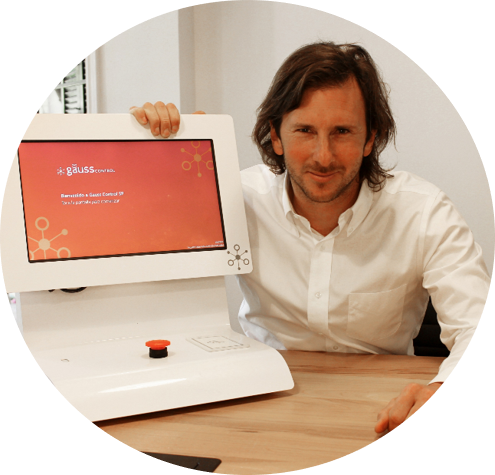Every year more than 2.78 million people die worldwide due to occupational accidents or work-related illnesses. In addition, nearly 374 million non-fatal injuries related to the work environment occur each year. Poor health and safety practices cause losses equivalent to 3.94% of the global Gross Domestic Product. All these data from the International Labor Organization indicate that death in the workplace is a harsh reality.
"Human error is behind 94% of road accidents and 80% of occupational injuries," warns the young Chilean engineer José Rafael Campino. Aware of the responsibility of people in these types of fatalities, he set out to use technology to reduce these accidents. This gave rise to Gauss Control, a piece of artificial intelligence (AI) software capable of detecting fatigue in workers and preventing and reducing accidents due to human error. Thanks to this breakthrough, Campino has been named as one of the winners of MIT Technology Review in Spanish's Innovators Under 35 Latin America 2020.
To train the algorithm, the young man explains that he collected data from many sources, such as sensors, telemetry and GPS, in order to reduce accidents thanks to AI. His software reduces the risk of fatigue for drivers of heavy vehicles. When the algorithm detects certain patterns that indicate the onset of fatigue, it issues a diagnosis and provides solutions to reduce the risk. According to Campino,
"Our artificial intelligence predicts more than 70% of the fatigue events" responsible for many of the human failures that cause accidents.
But, in addition to saving lives, his software also helps to protect ecosystems, since "90% of spills, such as the Deepwater Horizon oil spill in the Gulf of Mexico, are also the result of human error," he adds. Finally, he explains that since those who die in industrial accidents are often those who "have fewer resources," his initiative also has a positive impact on social justice. "Without that person, their family is destroyed," laments Campino.
And the advantages don't end there. Gauss Control achieves an improvement in workers' performance by reducing the mistakes they make. In this way, companies see an increase in their profit rate not only because of the reduction in work-related accidents but also because of higher productivity.
Gauss Control has been implemented in some of the world's most important mining and fuel companies that operate in Chile and Peru. Campino says these companies have managed to halve their accident rate. The software currently protects more than 10,000 workers every day. He now wants to expand Gauss Control in Latin America, the United States, and Australia.
The CEO of Viktoys (Peru), Víctor Freundt, who is also a member of the Innovators under 35 Latin America 2020 jury, agrees that it is "a tool that makes it possible to take care of lives, as well as to avoid possible expenses in companies, reducing human errors." According to the expert, it is a "very interesting innovation because it uses information analysis to avoid accidents and human errors due to fatigue."




